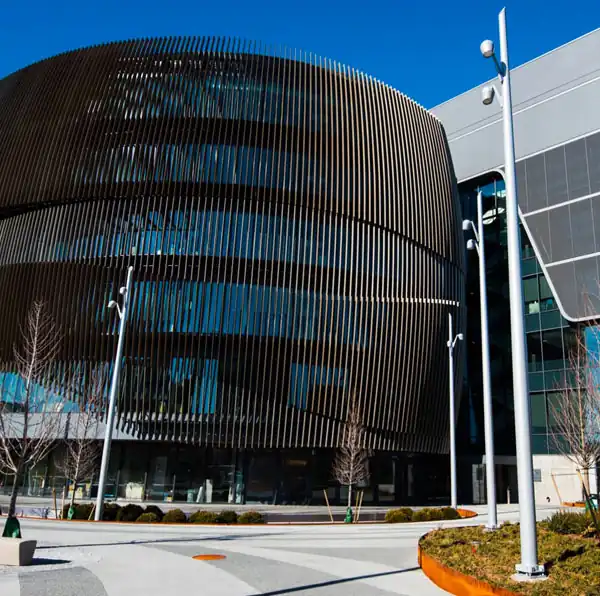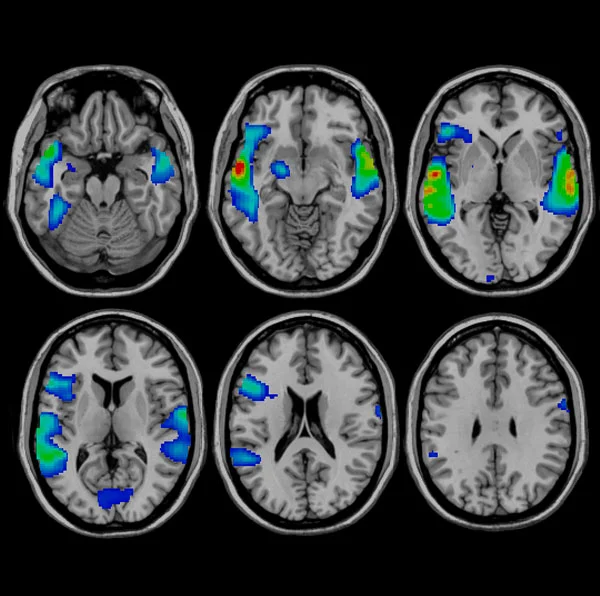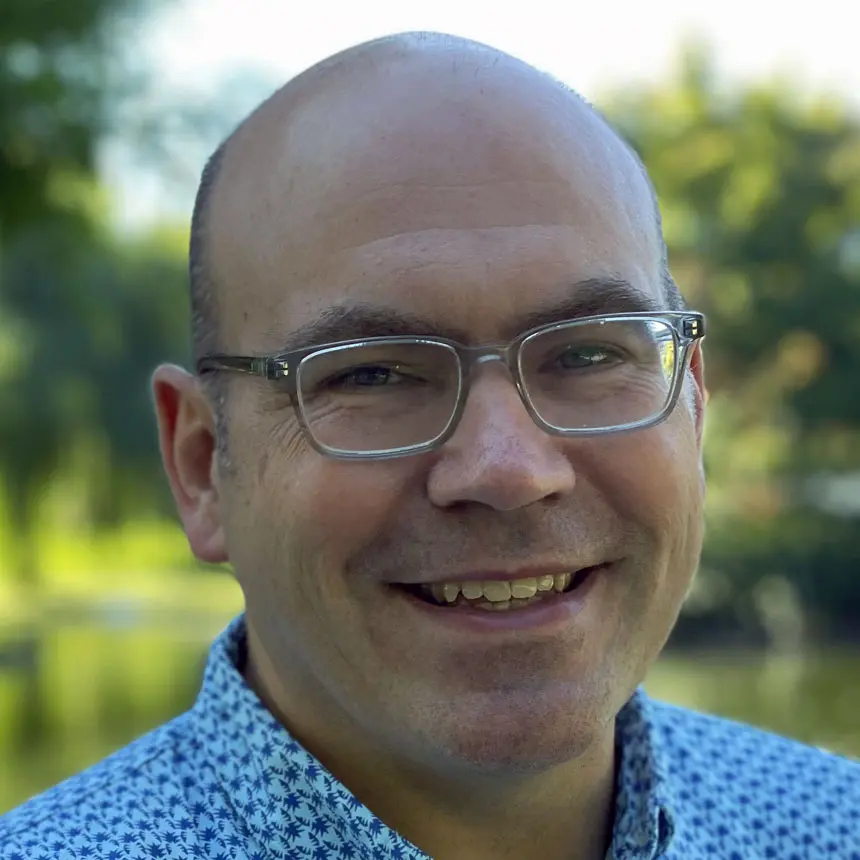YOU ARE BOUVÉ
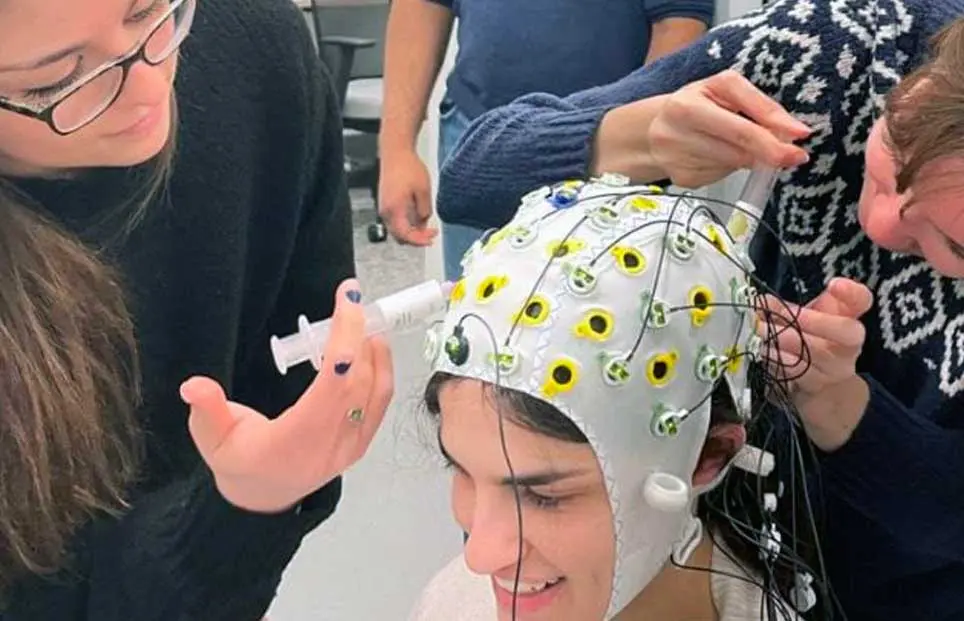
Our researchers seek to improve the lives for individuals with disability through the advancement of clinical interventions rooted in cutting-edge evidence-based science. We are committed to research translation to eliminate communication disparities.
Our department is a unique transdisciplinary setting that incorporates teaching, learning, and serving, in a rapidly evolving multicultural environment. Our research includes the below categories.
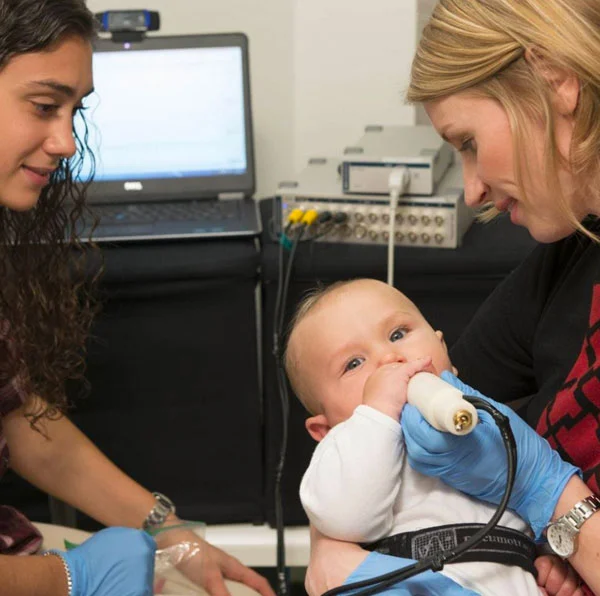
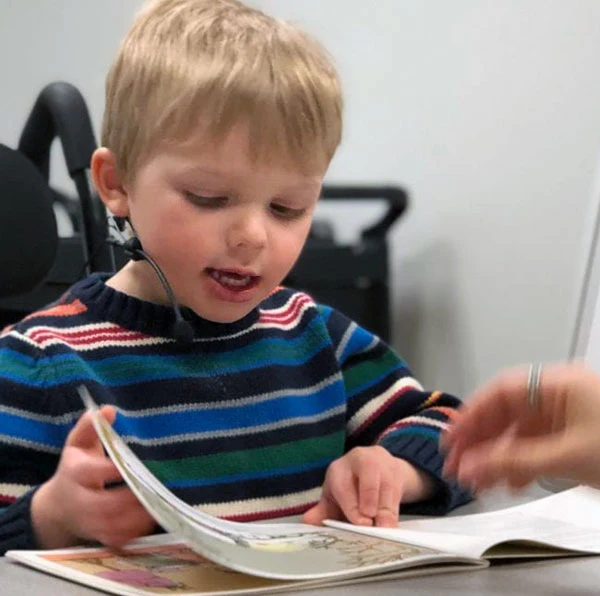
The Aphasia Network (TAN) Lab to study the nature of beneficial neural reorganization of language in stroke-induced chronic aphasia. Implementing Functional Near-Infrared Spectroscopy (fNIRS), researchers in the TAN lab are working to determine how brain structure-function dynamics relate to behavior. The TAN Lab aims to maximize functional communication recovery in people with aphasia by better understanding the links between the brain, language, and behavior in real-world contexts. Dr. Meier recently published a journal article, titled “Dissociable language and executive control deficits and recovery in post-stroke aphasia: An exploratory observational and case series study.”
Our faculty conduct research in a broad range of topics related to augmentative and alternative communication (AAC). In addition to being an internationally renowned expert in evidence based practice, Dr. Ralf Schlosser studies symbol representation and the efficacy of speech-generating devices on diverse populations including children with autism. In collaboration with Dr. Doreen M. Blischak of the University of Florida, Dr. Schlosser is currently studying the effects of synthetic speech output and visual display feedback on spelling in children with autism.
Dr. Rupal Patel works with engineers and computer scientists to build novel communication aids that leverage the vocal abilities of individuals with severe speech impairments.
Although she is not currently conducting research at Northeastern, Dr. Kim Ho also specializes in conducting AAC assessments and speech-generating-device trials with students at the on-campus Speech-Language and Hearing Center.
Compared with families who are homed, families who are homeless are at increased risk for decreased language and health literacy. Dr. O’Neil-Pirozzi has a long history of working with these families in various clinical and research capacities to facilitate their language and health literacy skills and language and health outcomes.
While working with Dr. O’Neil-Pirozzi on this project, students have the opportunity to read a story and prepare an accompanying activity for children at a local homeless shelter each month.
Dr. Zhenghan Qi leads undergraduate and graduate students in the Language Acquisition and Brain Laboratory (QLAB) to investigate the brain’s inner workings and how knowledge of our brain may support language learning and intervention.
Researchers in the QLab rely on behavioral and neuroimaging techniques (such as eye-tracking, EEG, and MRI) to understand how neural organization for language processing changes across the lifespan, as well as how various language networks function across neurodevelopmental disorders.
Dr. Qi recently published a journal article, titled “Link the neural basis of distributional statistical learning with transitional statistical learning: The paradox of attention.”
Erin Meier, PhD, CCC-SLP
The Aphasia Network (TAN) Lab
Rupal Patel, PhD, CCC-SLP
Communication Analysis and Design (CAD) Lab
Therese M. O’Neil-Pirozzi, DSc, CCC-SLP
Traumatic Brain Injury Resource for Survivors and Caregivers
Zhenghan Qi, MD, PhD
Language Acquisition and Brain Laboratory (QLAB)
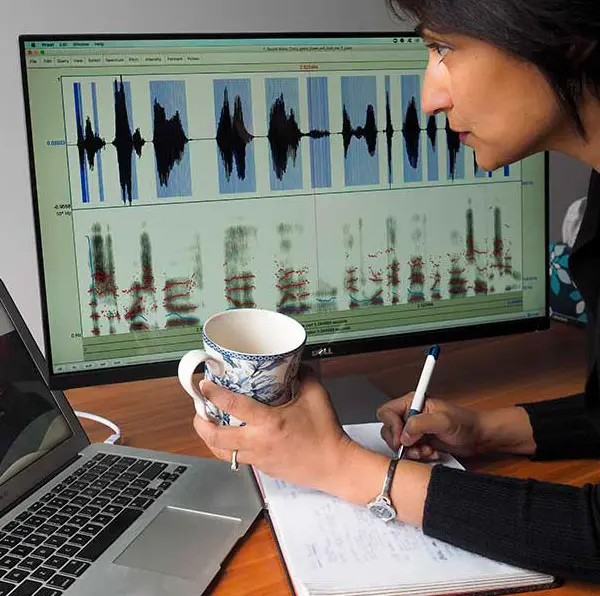
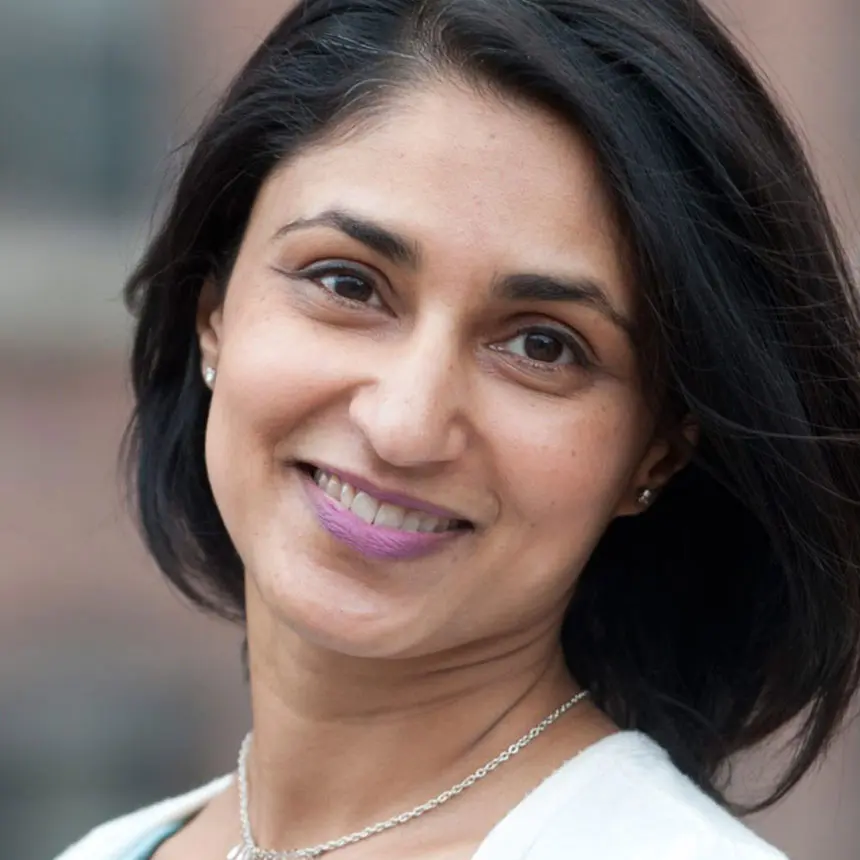
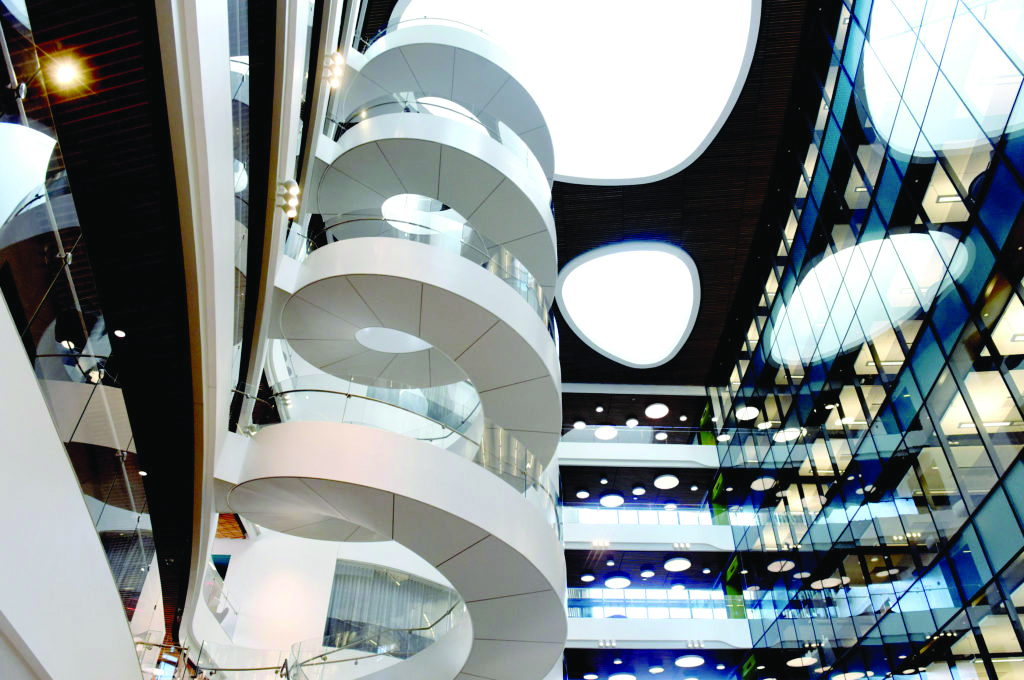
Individuals with neurogenic impairments often present with speech motor disorders such as apraxia of speech and/or dysarthria.
Dr. Kristen Allison’s research in the Speech Motor Impairment and Learning (SMILe) Lab centers on improving assessment and treatment of motor speech disorders in children, as well as pediatric dysarthria. Researchers within the SMILe Lab rely on behavioral approaches, analysis of speech signals, and 3D face tracking technology to study and assess the impacts of motor speech disorders in children.
Dr. Therese O’Neil-Pirozzi’s studies these impairments in individuals who have suffered traumatic brain injury. Her extensive network of clinical affiliations, including Spaulding Rehabilitation Center, provide a natural outlet for transforming research findings to clinical practice.
Dr. Patel’s work focuses on acoustic consistencies in dysarthric speech with the goal of developing technologies that can harness these regularities for communication.
Through thoughtful interdisciplinary collaboration, students and professionals within the engineering, biology, and pediatric health sciences fields examine the relationship between sucking, feeding, and early vocal development.
Led by Dr. Emily Zimmerman, researchers in the Speech and Neurodevelopment Lab (SNL) study Non-Nutritive Suck (NNS) among infants across different stages of development to describe sucking and neurodevelopment through the early stages of life
Dr. Jonathan Peelle leads the Peelle Lab with a focus on neurobiology and speech comprehension. Auditory processing in adults is a main theme within his research, and it is explored in comparison to factors such as background noise, accents, and hearing loss.
This research allows for changes over time to be observed, as seen in sampling individuals of different ages. While working with Dr. Peelle in his lab, students explore how the brain responds to and adapts in relation to sound.
Individuals of any age can have difficulty eating, drinking, and/or swallowing (dysphagia) for a multitude of reasons.
Dr. O’Neil-Pirozzi studies characteristics of feeding-swallowing in various populations to better understand motor, sensory, aerodynamic, and cognitive-behavioral aspects of these processes in order to maximize diagnostic and therapeutic interventions with individuals who have dysphagia.
Dr. Emily Zimmerman studies pediatric dysphagia and designs assessments and implements therapies aimed at improving sucking and oral feeding development with a special focus on infants born premature.
Traumatic Brain Injury (TBI) affects individuals across the lifespan. Following TBI, individuals may present with cognitive-communication, psychosocial, and physical consequences.
Dr. O’Neil-Pirozzi directs the Cognitive-Community Integration Lab and leads various research studies examining brain structure and function.
Kristin Allison, PhD, CCC-SLP
Speech Motor Impairment and Learning (SMILe) Lab
Emily Zimmerman, PhD, CCC-SLP
Speech and Neurodevelopment Lab (SNL)
Jonathan Peelle, PhD
The Speech, Hearing, and Communication (SHAC) Lab
Therese M. O’Neil-Pirozzi, DSc, CCC-SLP
Cognitive-Community Integration Lab
